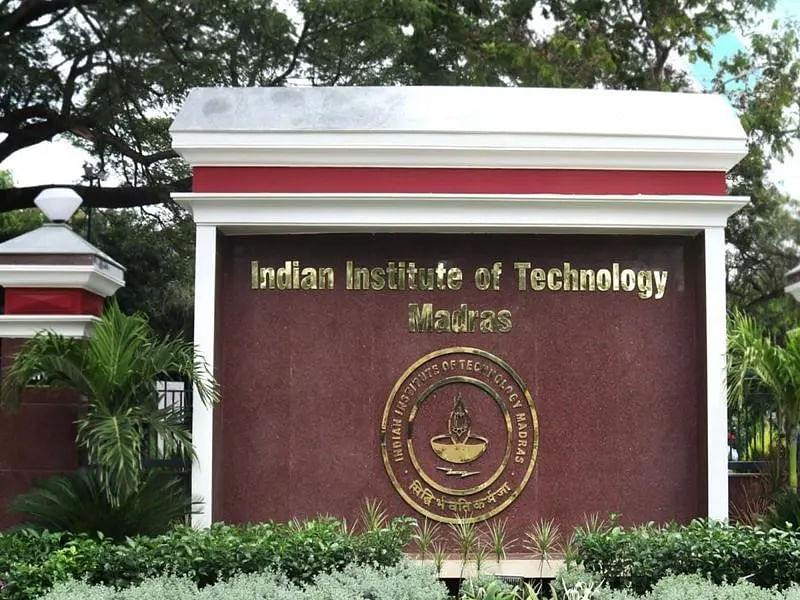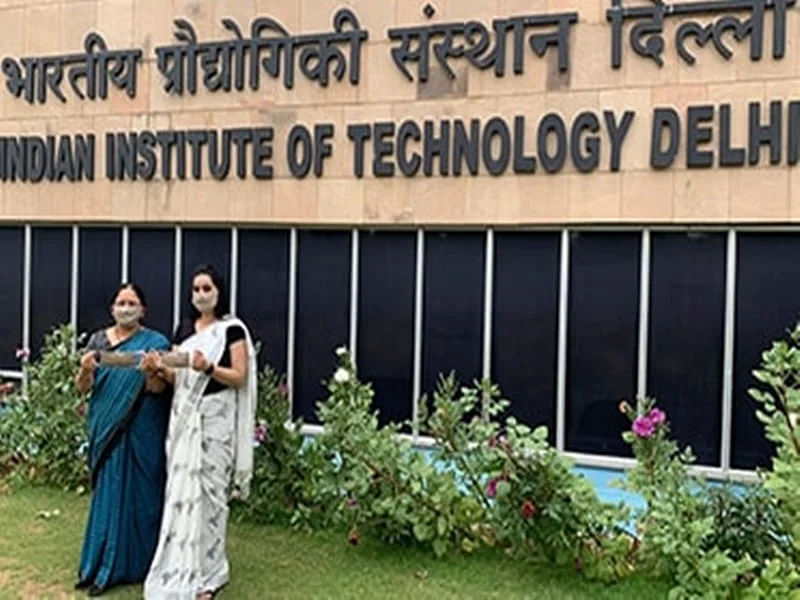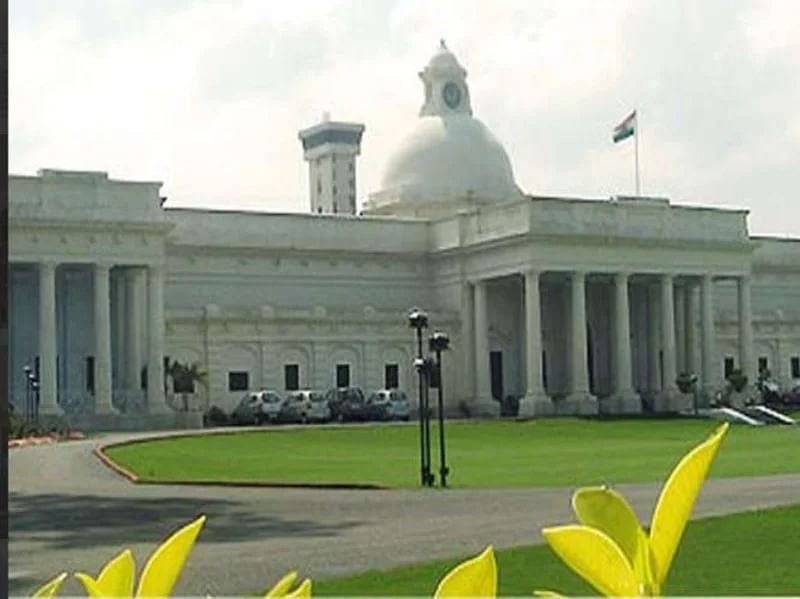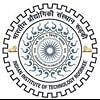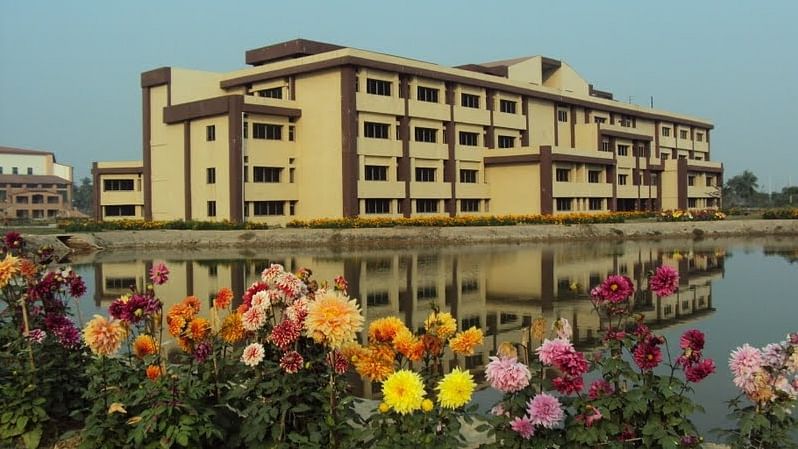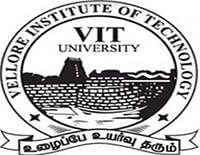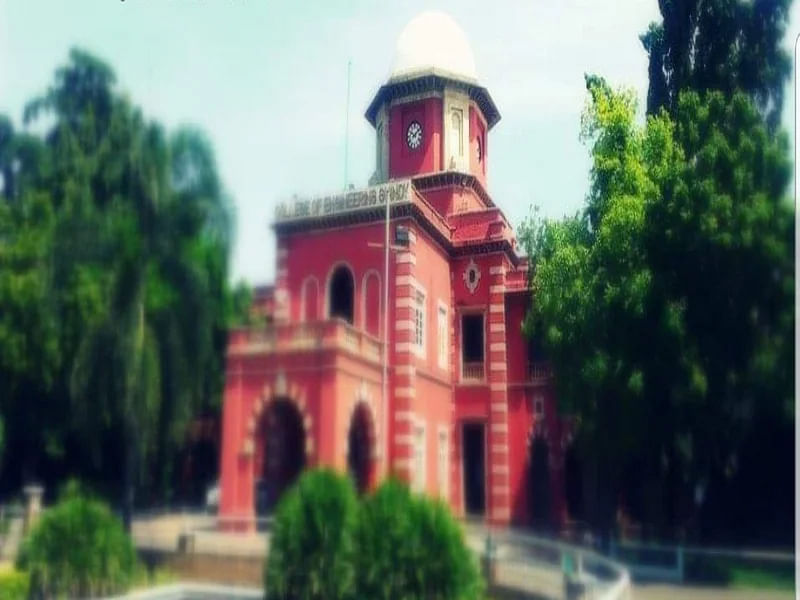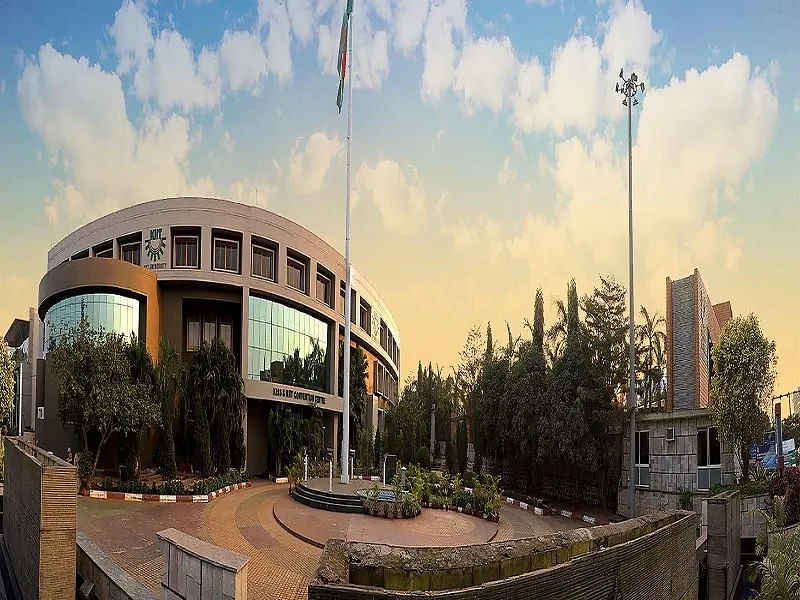BTech Biotechnology Syllabus and Subjects - Semester Wise Core & Electives

The BTech Biotechnology syllabus deals with the study of topics such as Biochemistry, Environmental Biotechnology, Microbiology, Bioinformatics, Bioprocess Engineering, Molecular Biology, and more. The BTech Biotechnology course curriculum is strategically divided into eight semesters spanning four years.
The syllabus for BTech in Biotechnology may vary depending on the university offering the program. However, the core BTech Biotechnology subjects include Introduction to Biotechnology, Mathematics, Microbiology, Materials Science, Cell Biology, etc, and the elective subjects such as Fermentation Technology, Pharmaceutical Biotechnology, Environmental Engineering, Plant Biotechnology, etc.
The B.Tech Biotechnology syllabus includes core and elective courses, practicals, internships, and projects that equip students with skills such as laboratory techniques, data analysis, bioprocess design, genetics engineering, etc. B.Tech Biotechnology course aims at preparing students to work in diverse fields such as food, pharmaceuticals, chemicals, bio-products, textiles, medicine, nutrition, etc.
Table of Contents
Semester-Wise BTech Biotechnology Syllabus
The B.Tech Biotechnology in Biotechnology syllabus is divided into 8 semesters in which the first two years have generalized subjects while the next two years have more specialized topics. Listed below is the B.Tech Biotechnology Syllabus semester wise:
B.Tech Biotechnology 1st Year Syllabus
The first-year BTech Biotechnology syllabus focuses on subjects such as Mathematics, Physics, Chemistry, Engineering Mechanics, etc. Listed below is the BTech Biotechnology sem 1 and 2 syllabus:
|
Semester I |
Semester II |
|
Communicative English |
Engineering Mathematics-II |
|
Engineering Physics |
Material Science |
|
Engineering Chemistry |
Civil and Mechanical Engineering |
|
Engineering Mathematics-I |
Microbiology |
|
Problem Solving and Python Programming |
Biochemistry |
|
Engineering Graphics |
Environmental Studies |
|
Laboratory/ Practical Work |
Laboratory/ Practical Work |
Practical Topics for First-Year BTech Biotechnology Syllabus
Listed below are the BTech Biotechnology practical topics for 1st and 2nd semester:
- Problem-Solving and Python Programming Laboratory
- Physics and Chemistry Laboratory
- Engineering Mechanics Laboratory
- Biochemistry Laboratory
B.Tech Biotechnology 2nd Year Syllabus
The second-year BTech Biotechnology syllabus semester wise focuses on subjects such as Fluid Mechanics, Bioorganic Chemistry, Molecular Biology, etc. Listed below is the BTech Biotechnology 3rd and 4th sem syllabus:
|
Semester III |
Semester IV |
|
Transforms and Partial Differential Equations |
Probability and Statistics |
|
Basic Industrial Biotechnology |
Fluid Mechanics and Heat Transfer Operations |
|
Bioorganic Chemistry |
Molecular Biology |
|
Applied Thermodynamics for Biotechnologists |
Enzyme Technology and Biotransformations |
|
Stoichiometry |
Bioprocess Principles |
|
Cell Biology |
Laboratory/ Practical Work |
|
Laboratory/ Practical Work |
- |
Practical Topics for Second Year B.Tech Biotechnology Syllabus
Listed below are the BTech Biotechnology practical topics for 3rd and 4th semester:
- Microbiology Laboratory
- Cell Biology Laboratory
- Chemical Engineering Laboratory for Biotechnologists
- Molecular Biology Laboratory
Read more: Scope of BTech Biotechnology in India
B.Tech Biotechnology 3rd Year Syllabus
The BTech in Biotechnology third-year syllabus covers subjects such as Bioinformatics, Protein Engineering, Chemical Reaction Engineering, etc. Listed below is the syllabus of B Tech Biotechnology 5th and 6th semester:
|
Semester V |
Semester VI |
|
Mass Transfer Operations |
Bioinformatics |
|
Bioprocess Engineering |
Genetic Engineering |
|
Analytical Methods and Instrumentation |
Applied Chemical Reaction Engineering |
|
Protein Engineering |
Animal Biotechnology / Systems Biology / Biological Spectroscopy |
|
Biophysics / Principles of Food Processing / Advanced Biochemistry |
Cancer Biology / Molecular Pathogenesis of Infectious Diseases / Biopharmaceutical Technology |
|
Laboratory/ Practical Work |
Metabolic Engineering / Structural Biology / Genomics and Proteomics |
|
- |
Laboratory/ Practical Work |
Practical Topics for Third Year B.Tech Biotechnology Syllabus
Listed below are the BTech Biotechnology practical topics for 5th and 6th semester:
- Bioprocess Laboratory
- Analytical Methods and Instrumentation Laboratory
- Genetic Engineering Laboratory
B.Tech Biotechnology 4th Year Syllabus
The B.Tech Biotechnology 4th year syllabus covers subjects such as Immunology, Quality Management, Genetics, etc. Listed below are the BTech Biotechnology 7th-semester and 8th-semester syllabi:
|
Semester VII |
Semester VIII |
|
Quality Control Management in Biotechnology |
Principles of Management & Entrepreneurial Development |
|
Downstream Processing |
Project Work |
|
Immunology |
- |
|
Plant Biotechnology / Bioconjugate Technology and Applications / Genetics |
- |
|
Neurobiology and Cognitive Sciences / Tissue Engineering / Biosafety and Hazard Management |
- |
|
Laboratory/ Practical Work |
- |
Practical Topics for Fourth Year BTech Biotechnology Syllabus
Listed below are the BTech Biotechnology practical topics for 7th and 8th semester:
- Downstream Processing Laboratory
- Immunology Laboratory
Read more: BSc Biotechnology vs BTech Biotechnology - Which is Better?
BTech Biotechnology Subjects - Core & Electives
The subjects in BTech Biotechnology are divided into core and elective courses. Students also prepare presentations and participate in discussions which helps them learn better as a part of the curriculum. Following are the year-wise subjects in B.Tech Biotechnology:
B.Tech Biotechnology Subjects 1st Year
The BTech Biotechnology subjects 1st year cover topics such as Engineering Mathematics, Biomolecules, Microbes, Metabolism Concepts, and more.
Listed below are the B.Tech Biotechnology subjects in 1st year and topics covered under them.
|
Subjects |
Topics Covered |
Subject Type |
|
Communicative English |
Vocabulory Development, Language Development, Grammar, Reading, Extended Writing |
Core |
|
Engineering Physics |
Properties of Matter, Wave and Fiber Optics, Thermal Physics, Quantum Physics |
|
|
Engineering Chemistry |
Water and It’s Treatment, Surface Chemistry, Catalysis, Alloys, Phase Rule, Fuels & Combustion, Energy Sources, Storage Devices |
|
|
Engineering Mathematics-I |
Differential Calculus, Partial Differentiation, Integral Calculus, Multiple Integrals, Differential Equations |
|
|
Problem Solving and Python Programming |
Algorithmic Problem Solving, Data, Expressions, Statements, Control Flow, Functions, Lists, Tuples, Dictionaries, Files, Modules, Packages |
|
|
Engineering Graphics |
Plane Curves, Projection of Points Lines & Plane Surface, Projection of Solids, Isometric & Perspective Projections |
|
|
Engineering Mathematics-II |
Matrices, Vector Calculus, Analytic Functions, Complex Integration, Laplace Transform |
|
|
Material Science |
Preparation of Materials, Conducting Materials, Seminconducting Materials, Dielectric and Magnetic Materials |
|
|
Civil and Mechanical Engineering |
Structural, Construction, Geotechnical, Environmental, Transportation, Water Resources Engineering , Production, Automobile, Energy Engineering |
|
|
Microbiology |
Microbes, Microbial Nurtrition Growth & Metabolism, Control of Microorganisms, Industrial & Environmental Microbiology |
|
|
Biochemistry |
Biomolecules, Carbohydrates, Structure & Properties of Other Biomolecules, Metabolism Concepts, Carbohydrate Metabolism, Protein Transport |
|
|
Environmental Studies |
Environment, Ecosystem, Biodiversity, Environmental Pollution |
|
|
Problem-Solving and Python Programming Laboratory |
Write Test & Debug Python Program, Python Program with Conditionals & Loops, Structuring Python Programs, Compound Data |
Laboratory/Practical |
|
Physics and Chemistry Laboratory |
Principles of Elasticity, Optics, Thermal Properties, Quantitative Chemical Analysis of Water Related Parameters |
|
|
Engineering Mechanics Laboratory |
Buildings, Plumbing Works, Carpentry Using Power Tools, Welding, Machining, Sheet Metal Work |
|
|
Biochemistry Laboratory |
Qualitative & Quantitative Estimation of Biomolecules, Laboratory Analysis of Biomolecules in Body Fluid |
B.Tech Biotechnology Subjects 2nd Year
The BTech Biotechnology subjects 2nd year focuses on concepts such as Bioproducts, Cell Biology, Fermentation Processes, and more.
The second year B.Tech Biotechnology subjects and topics covered are listed below.
|
Subjects |
Topics Covered |
Subject Type |
|
Transforms and Partial Differential Equations |
Fourier Series, Applications of Partial Differential Equations, Fourier Transforms, Z-Transfroms and Difference Equations |
Core |
|
Basic Industrial Biotechnology |
Industrial Bioprocess, Primary Metabolites, Secondary Metabolites, Enzymes, Bioproducts, Modern Biotechnology Products |
|
|
Bioorganic Chemistry |
Bonding & Stereochemistry, Substitution & Addition Reactions, Kinetics, Catalysis, Bioorganic Reactions |
|
|
Applied Thermodynamics for Biotechnologists |
Thermodynamic Law, Properties of Fluids, Solution Thermodynamics, Phase Equilibria, Chemical Reaction Equilibria |
|
|
Stoichiometry |
Chemical Calculations, Ideal & Actual Gas Equations, Material Balance, Energy Balance, Chemical Reaction |
|
|
Cell Biology |
Cell Structure, Cell Division, Cancer, Transport Across Cell Membrane, Signal Transduction |
|
|
Probability and Statistics |
Probability & Random Variables, 2D Random Variables, Testing of Hypotheis, Design of Experiments, Statistical Quality Control |
|
|
Fluid Mechanics and Heat Transfer Operations |
Fluid Properties, Fluid Mechanica, Fluid Flow, Heat Transfer Conduction, Convection, Radiation, Equipments |
|
|
Molecular Biology |
Chemistry of Nucleic Acids, DNA Replication & Repair, Transcription |
|
|
Enzyme Technology and Biotransformations |
Kinetics of Enzyme Action, Enzyme Immobilization & Biosensors, Biotransformation |
|
|
Bioprocess Principles |
Fermentation Processes, Raw Materials & Media Design for Fermentation Process, Sterilization Kinetics |
|
|
Microbiology Laboratory |
Sterilization Techniques, Culture Media & Techniques, Microscopy, Staining Techniques, Antibiotic Sensitivity Assay |
Laboratory/Practical |
|
Cell Biology Laboratory |
Sterile Techniques, Cell Propagation, Phase Contrast, Fluorescent Microscopy, Staining, Osmosis, Tonicity |
|
|
Chemical Engineering Laboratory for Biotechnologists |
Flow Measurement, Pressure Drop, Centrifuge Pump, Filtration |
|
|
Molecular Biology Laboratory |
Electrophoresis, Competent Cells Preparation, Transformation, Antibiotic Sensitivity Assay |
B.Tech Biotechnology Subjects 3rd Year
The B.Tech Biotechnology 3rd year subjects focus on topics such as Bioreactors, Protein Structure Analysis, Spectroscopy, etc. The B.Tech Biotechnology subjects and topics covered are given in the table below.
|
Subjects |
Topics Covered |
Subject Type |
|
Mass Transfer Operations |
Diffusion & Mass Transfer, Gas Liquid Operations, Vapour Liquid Operations, Extraction Operations, Solid Fluid Operations |
Core |
|
Bioprocess Engineering |
Bioreactors, Bioreactor Consideration in Enzyme Systems, Modelling & Simulation of Bioprocesses, Recombinant Cell Cultivation |
|
|
Analytical Methods and Instrumentation |
Spectrometry, Spectroscopy, Magnetic Resonance Spectroscopy & Mass Spectroscopy, Separation Methods, Electro Analysis & Surface Microscopy |
|
|
Protein Engineering |
Protein Architecture, Tertiary Structure, Structure-Function Relationship, Proteomics |
|
|
Bioinformatics |
Sequence Alignment, Phylogenetic Methods, Protein Structure Analysis, Perl Programming |
|
|
Genetic Engineering |
Recombinant DNA Technology, DNA Libraries, Sequencing & Amplification of DNA, Organization and Structure of Genomes, Current Status of Genome Sequencing Projects |
|
|
Applied Chemical Reaction Engineering |
Scope of Chemical Kinetics, Chemical Reaction Engineering, IDeal Reactors, Non Ideal Reactors |
|
|
Biophysics |
Molecular Structure of Biological Systems, Conformation of Nucleic Acids Protein, Cellular Permeability and Iin-Transport, Energetics & Dynamics of Biplogical Systems |
Elective |
|
Principles of Food Processing |
Food & Energy, Food Additives, Food Borne Diseases, Food Preservation |
|
|
Advanced Biochemistry |
Metabolism of Amino Acids, Protein Transport and Degradation, Biochemistry of Muscle Contraction, Vitamins & Coenzymes, Hormones |
|
|
Animal Biotechnology |
Animal Cell Structure, Animal Diseases and Their Diagnosis, Micromanipulation of Embryo’s. Transgenic Animals |
|
|
Systems Biology |
Kinetic Modeling, Flux Balance Analysis, Network Motifs and Models, Resources and SBML |
|
|
Biological Spectroscopy |
Nuclear Magnetic Resonance, Mass Spectrometry, X-ray Diffraction |
|
|
Cancer Biology |
Carcinogenesis, Molecular Cell Biology of Cancer, Cancer Metastasis, Cancer Therapy |
|
|
Molecular Pathogenesis of Infectious Diseases |
Host-Defence Against Pathogens, Molecular Pathogenesis, Host-Pathogen Interactions |
|
|
Biopharmaceutical Technology |
Drug Action, Pharmacokinetics, Manufacture of Drugs Process & Applications, Drug Manufacture |
|
|
Metabolic Engineering |
Pathway Manipulation-Qualitative Treatment, Material Balances & Data Consistency, Metabolic Flux Analysis, Metabolic Control Analysis |
|
|
Structural Biology |
Protein Structure, Protein Thermodynamics, Kinetics, Computational Structural Biology |
|
|
Genomics and Proteomics |
Genome Mapping, Sequencing, Functional Genomics, Proteomics Technique, Protein Profiling |
|
|
Bioprocess Laboratory |
Enzyme Characterization, Immobilization, Medium Optimization Methods |
Laboratory/Practical |
|
Analytical Methods and Instrumentation Laboratory |
Absorption Spectroscopic Methods, Chromatography, Spectrometric, Microscopic Techniques |
|
|
Genetic Engineering Laboratory |
Plasmid DNA, Restriction Digestion, Ligation, Transformation & Selection of Recombinant |
B.Tech Biotechnology Subjects 4th Year
The final year BTech Biotechnology subjects cover topics such as Quality Management, Immune Systems, Genetics, and more.
The B.Tech Biotechnology subjects 4th year are provided in the table below.
|
Subjects |
Topics Covered |
Subject Type |
|
Quality Control Management in Biotechnology |
Quality Management, Pharmacopoeias, GMP, Indian Regulatory Agencies, Accreditation |
Core |
|
Downstream Processing |
Physical Methods of Separation, Isolation of Products, Product Purification, Final Product Formulation |
|
|
Immunology |
Immune System, Humoral & Cellular Immunity, Hypersensitivity, Applied Immunology |
|
|
Principles of Management & Entrepreneurial Development |
Definition, Purpose, Organising, Human Resource Management |
|
|
Plant Biotechnology |
Genetic Material, Chloroplast, Mitochondria, Nitrogen Fixation, Agrobacterium, Viral Vectors |
Elective |
|
Bioconjugate Technology and Applications |
Functional Targets, Chemistry of Active Groups, Bioconjugate Reagents, Enzyme and Nucleic Acid Modification & Conjugation, Bioconjugate Applications |
|
|
Genetics |
Bacterial Genetics, Classical Genetics, Applied Genetics, Population Genetics, Genetic Diseases |
|
|
Neurobiology and Cognitive Sciences |
Neuroanatomy, Neurophysiology, Neuropharmacology, Applied Neurobiology, Behaviour Science |
|
|
Tissue Engineering |
Tissue Architecture, Biomaterials, Basic Biology of Stem Cells, Clinical Applications |
|
|
Biosafety and Hazard Management |
Quality Checks, Risk Analysis, Safety Audits, Hazardous Operations |
|
|
Downstream Processing Laboratory |
Centrifugation, Microfiltration, Ultra Filtration Separation, Cell Disruption Techniques |
Laboratory/Practical |
|
Immunology Laboratory |
Immunological / Clinical Tests, Immunodiffusion, Isolation |
BTech Biotechnology Course Structure
The BTech Biotechnology course structure is a mix of theoretical knowledge and practical knowledge which includes projects, group discussions, research papers, and also internships. The BTech Biotechnology course structure includes:
- Core and Elective Subjects
- VIII Semesters
- Projects
- Research Papers
- Surveys
- Seminars
- Practicals
- Thesis Writing
BTech Biotechnology Teaching Methodologies and Techniques
The teaching methodology for B.Tech Biotechnology involves a combination of classroom teaching along with teaching through real-world application of that knowledge through case study projects.
This teaching methodology helps in building a comprehensive understanding of biotechnology concepts. Through this methodology, students can understand the world of genomics, artificial modelling, etc. Some teaching methodologies and techniques used by colleges are:
- Discussions
- Field trips
- Practical Learnings
- Problem-based
- Projects
- E-learning
- Co-curricular activities
BTech Biotechnology Projects
Biotechnology combines biology with technology and offers a vast opportunity for doing projects during the final semester. BTech Biotechnology projects help boost students' confidence by applying the practical use of their learnings and help them make better leaders and decision-makers.
Listed below are some popular BTech Biotechnology project topics:
- Production Of Ethanol Using Molasses And Its Pollutant Treatment
- Scattering Parameters Of Circulator Biotechnology
- Various Methods Of Evapotranspiration
- Renewable Energy Technology Management Promoting Village
BTech Biotechnology Reference Books
The B.Tech Biotechnology books cover foundational concepts and theories, methodologies, practical applications, and laboratory experiments for students to refer to.
The year-wise B.Tech Biotechnology books followed in most colleges is provided in the sections below.
B.Tech Biotechnology Books First Year
The first year B.Tech Biotechnology books cover foundational concepts and topics such as Microbiology, Biochemistry, Basic Engineering, and more..
The 1st year B.Tech Biotechnology books are provided in the table below.
|
Books |
Authors |
Topics Covered |
|
Foundations in Microbiology |
Talaron K, Talaron A, Casita, Pelczar and Reid |
Microbial Cell Structure, Microbial Growth & Control, Metabolism |
|
Advanced Engineering Mathematics |
Erwin Kreyszig |
Differential Equations, Vector Calculus, Optimization Techniques |
|
Biochemistry |
Satyanarayana, U. and U. Chakerapani |
Enzymology, Bioenergetics, Clinical Biochemistry |
|
Outlines of Biochemistry |
E.E. Conn |
Cell Structure, Amino Acids, Proteins |
B.Tech Biotechnology Books Second Year
The B.Tech Biotechnology second year books cover topics such as Cell Biology, Enzyme Technology, Bioprocess Principles, etc.
Listed below are the 2nd year B.Tech Biotechnology books for the second year.
|
Books |
Authors |
Topics Covered |
|
Stoichiometry |
Bhatt B.I & SB Thakore |
Chemical Equations, Chemical Reactors, Energy Balanaces |
|
Basic principles & Calculations in Chemical Engineering |
Himmelblau D.M |
Process Variables, Energy Balances, Process Simulation |
|
Chemical and Engineering Thermodynamics |
Sandler S.I. |
Laws of Thermodynamics, Phase Equiliibria, Biochemical Engineeiring |
|
A Textbook on Biotechnology |
Kumar, H.D |
Cell Biology, Genetics, Enzyme Technology |
B.Tech Biotechnology Books Third Year
The third-year B.Tech Biotechnology books deal with advanced concepts of Biotechnology such as Bioprocess Engineering, Protein Technology, Bioinformatics, etc.
The B.Tech Biotechnology third year books are listed below.
|
Books |
Authors |
Topics Covered |
|
Cell Biology: Essential Techniques |
Rickwood, D. and J.R. Harris |
Cell Culture Technique, Microscopy Techniques, Cell Fractionation |
|
Heat & Mass Transfer |
P. K. Nag |
Conduction Heat Transfer, Convection Heat Transfer, Heat Exchangers |
|
Molecular Biology |
David Friefelder |
Nucleic Acids, DNA Replication, RNA Transcription |
|
Biotransformations in Organic Chemistry |
K. Faber |
Enzyme Catalysis, Oxidation, Hydrolysis |
B.Tech Biotechnology Books Fourth Year
The fourth year B.Tech Biotechnology books cover important topics such as Downstream Processing,Quality Control Management, Immunology, etc.
Listed below are some of the B.Tech Biotechnology books used in the fourth year.
|
Books |
Authors |
Topics Covered |
|
Total Quality Management |
Suganthi.L and Anand Samuel |
Principles, Tools & Techniques, Statistical Process Control |
|
Immunology |
Ashim K. Chakravarthy |
Immune System, Antigens, Antibodies, Effector Mechanisms |
|
Biophysical Chemistry |
Cantror, Charles R. and Paul R. Schimmel |
Kinetics, Quantum Mechanics, Spectroscopic |
|
Proteins: Structure and Molecular Properties |
T.E. Creighton |
Protein Dynamics, Protein Function, Protein-Ligand Interactions |
Top BTech Biotechnology Colleges
Top Engineering Entrance Exams
BTech Biotechnology Fee Structure
FAQs on BTech Biotechnology Syllabus and Subjects
Q: Is there maths in BTech Biotechnology?
Q: Can I join BTech Biotechnology without maths?
Q: How many subjects are there in Biotechnology?
Q: Is BTech Biotechnology hard?
Q: Is coding taught in BTech Biotechnology?
Q: Is Python required for Biotechnology?
Q: What are the core B.Tech subjects semester wise for the 3rd year?
Q: Is there a focus on skill development in Btech biotechnology syllabus?
Q: Are there any elective subjects in the B.Tech Biotechnology syllabus?
Q: What kind of practical work is involved in BTech Biotech syllabus?
Q: How is the B.Tech Biotechnology syllabus assessed?
